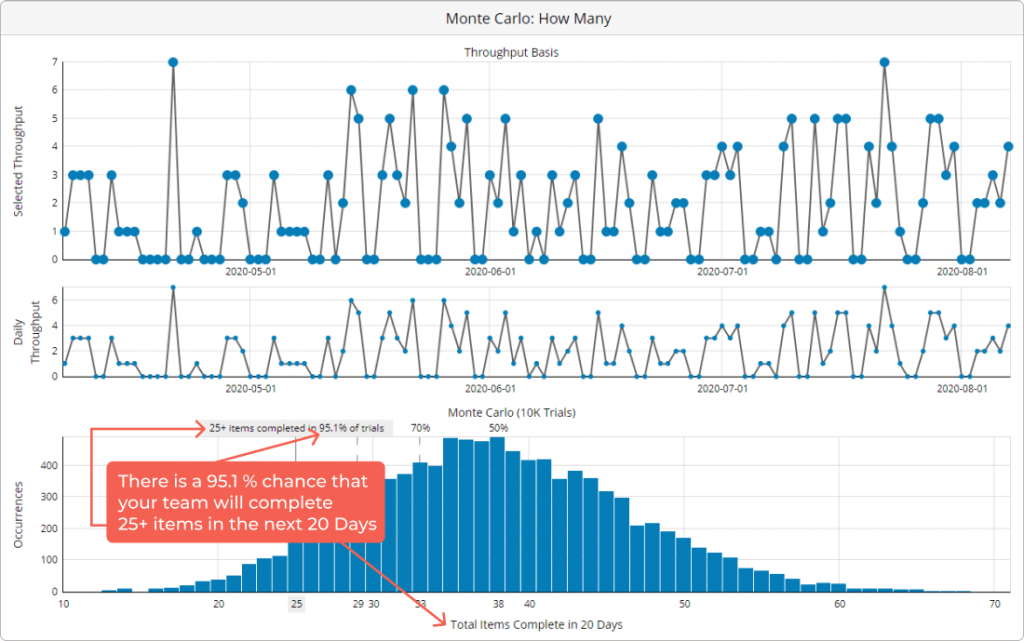ChatGPT & Co. are on everyone’s lips. Many people are thinking about how to make use of Artificial Intelligence (AI) or how to prevent its use – for fear of no longer being able to distinguish between contributions from humans and AI. There are also already some application proposals for the project management profession.
Options for KI application

Artificial Intelligence has the potential to significantly support project managers in various ways, both now and in the future. Here are some key ways AI can enhance project management:
1. Data Analysis and Predictive Analytics:
Artificial Intelligence can analyze vast amounts of project data to identify patterns, trends, and potential risks. This allows project managers to make more informed decisions based on data-driven insights.
Predictive analytics can help anticipate potential issues, delays, or resource constraints, enabling proactive management and risk mitigation.
2. Automated Task Management:
AI-powered tools can automate routine and repetitive tasks, such as scheduling, resource allocation, and progress tracking. This allows project managers to focus on more strategic aspects of project management.
Task automation can improve efficiency and reduce the likelihood of human errors in routine project activities.
3. Natural Language Processing (NLP) for Communication:
AI-driven chatbots or virtual assistants equipped with natural language processing capabilities can enhance communication within project teams. They can answer queries, provide updates, and facilitate better collaboration.
NLP can be used for sentiment analysis to gauge team morale and identify potential issues early.
4. Resource Optimization:

AI algorithms can help optimize resource allocation by considering factors such as team members’ skills, availability, and project requirements. This ensures that resources are used efficiently.
Machine learning models can adapt and learn from past projects to improve future resource allocation decisions.
5. Risk Management:
Artificial Intelligence can analyze historical project data to identify patterns associated with project success or failure, helping project managers assess and manage risks more effectively.
Advanced risk prediction models can provide early warnings about potential project risks, allowing for timely interventions.
6. Project Scheduling and Planning:
AI tools can assist in creating realistic project schedules by taking into account various factors, including resource availability, dependencies, and historical performance data.
Dynamic scheduling tools can adapt to changes in real-time, optimizing project plans as new information becomes available.
7. Decision Support:

Artificial Intelligence can provide decision support by analyzing complex project scenarios and suggesting optimal courses of action. This helps project managers make more informed decisions aligned with project goals.
AI-driven decision support systems can consider a wide range of factors and variables that may be challenging for humans to process comprehensively.
8. Continuous Learning and Improvement:
Artificial Intelligence can facilitate continuous learning within project teams by analyzing project outcomes, identifying areas for improvement, and providing insights for future projects.
Machine learning models can evolve and adapt based on the feedback and performance data from various projects.
How and what I use Artificial Intelligence for, and what I don’t
Gladly: Recording and evaluating
For me, it makes sense to use AI to collect and evaluate data. This requires that the data can be digitized and prompted. An example of this is taking minutes and then summarizing conversations, meetings, retrospectives, etc.
The evaluation of quantity data for analyses can also be an area of application for AI. Not for calculating any results from the raw data – spreadsheet programs such as Microsoft Excel are sufficient for that, and knowing which formulas were used to calculate and what the results say. But extracting new insights from these results, such as correlations, anomalies, etc., can be exciting and, above all, faster with the help of AI.
With caution: Reporting
I’m already becoming more cautious when creating reports. Of course, the aforementioned data can be perfectly processed into information and decorated with graphics and other bells and whistles, automated, of course. This would be a good way to simplify the day-to-day work of a project manager or PMO. But this often results in technical nonsense.
So, I still have to check the AI result and if necessary. until I can pass it on to my addressees. Sometimes I am faced with the question of actually saving time and simplifying my work, especially if I can fall back on fixed (reporting) formats, where I only have to enter the current content.
Difficult: Decisions

Where I can’t get used to Artificial Intelligence at all – at least at the moment – are the topics of decision-making and leadership. An AI-supported decision based on deep evaluations and information is fine, but the important things are not decided exclusively on the basis of numbers, data and facts, but with experience, empathy, diplomacy and other skills that a machine cannot have and will not have in the long term.
Finally, for the topics of leadership, motivation, conflict resolution, stakeholder management, etc., good human project management will always be needed. And even many people who call themselves project managers or executives are already overwhelmed.
My conclusion for AI today
In my many years of practice as a project manager and project renovator, I have often experienced that problems arise from an over-belief in processes and regulations, which are the basis for AI. Maybe I don’t (yet) have enough imagination for all the great things that AI can do for me in the future.
But I always think of the saying “Don’t trust any statistics that you haven’t created yourself”. So, if an AI comes to results that I can’t comprehend, I prefer to stick to my last and provide statements that I can take responsibility for.
As AI technologies continue to advance, project managers can leverage these capabilities to enhance their decision-making, improve project outcomes, and streamline various aspects of project management. It’s essential for project managers to stay informed about emerging AI tools and methodologies to harness their full potential.
Read more articles in ProjektMagazin Blog Parade 2024 …

Addendum: In the last few weeks, I have been working intensively on building a few “little helpers” for my work. No- or low-code tools such as MS Power Automate or UiPath seem to me to be suitable for automating and planning some routines of everyday life. With ChatGPT, I got some help with the “how to”.
My conclusion so far: It’s all still very much in its infancy. Relevant publications praise the potential, but how to do it is not written anywhere. The tools seem to be quite powerful, but in order to entrust them with meaningful tasks, intensive training is required, and no programming knowledge, but extensive knowledge of functions, parameters and validation rules. A new field to earn money with.
Ergo: I have a job that I can do well. I don’t plan to retrain as a tool specialist so that I can build some aids. If my manual effort exceeds that of using AI, I have to hire a specialist for money. Until then, I’d rather continue to do it myself as before and by hand…